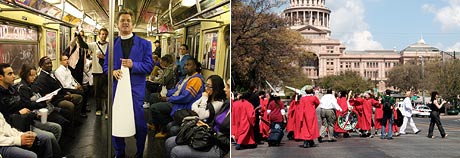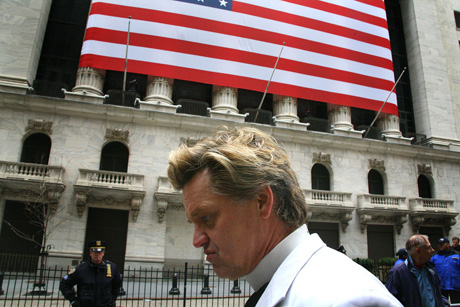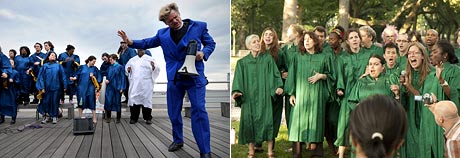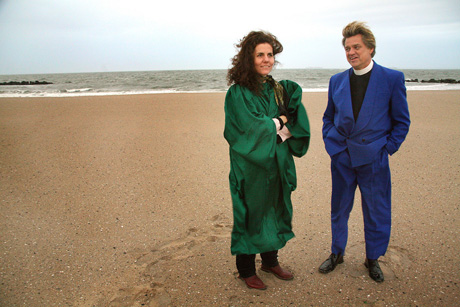Kayford Mountain, WVA, destroyed. 7/25/10 Photo by Brennan Cavanaugh (CC)

Candidate for Mayor of NYC Photo by Brennan Cavanaugh (CC)
Where events occur changes the relationship between viewer and actor, between spectator and participant.

Photo by Brennan Cavanaugh (CC)
Photo by Joe Flood (CC)
Like itinerant actors and agitators, Reverend Billy and the Church of Life After Shopping perform on the street, in the public commons, and in corporate retail spaces, using theatrical tools in service of social change.
Excerpt from What Would Jesus Buy? on "Democracy Now"

United For Peace and Justice march on Wall Street Photo by Brennan Cavanaugh (CC)
That zone, between art and political action, outside the market economy.
“...when a part of the self is given away...community appears.”
“When art acts as an agent of transformation…we may correctly speak of it as a gift.”
---Lewis Hyde, The Gift
"It’s about thinking independently together…that’s where the political acts live – between us."
---Savitri D.
Download Video:
MP4,
Ogg
HTML5 Video Player by VideoJS
Reverend Billy in front of Starbucks
Bill Talen went from being a solo performer to making work collaboratively, re-thinking theatre as an art form in public life.

Photo by C.S. Muncy (CC)
Central Park Picnic (CC)
“...the collective functions at a level superior to the creative capacities of the individuals which make it up...it blesses them… brings out the best in them, and serves as a floor below which the collective cannot drop…The individual participates in the accumulated genius of the collective, and by such participation becomes himself part of that genius – something more than himself...”
---Maya Deren, “The Collective as Creative Artist” in The Divine Horsemen
Reverend Billy and the Church of Life After Shopping:
Successfully pressured JP Morgan Chase Bank to stop funding Mountain Top Removal (MTR) Coal Mining in Appalachia
Successfully pressured Victoria’s Secret to discontinue use of old growth forest in their catalogs
Successfully pressured Starbucks to stop blocking efforts by Ethiopian Coffee Farmers to trademark the names of their coffee
Successfully kept Wal-Mart out of NYC with a broad coalition of neighborhood defense groups, unions, and anti-sweatshop churches
Reverend Billy arrested in Union Square, June 2007
“Theatre is a name, a label that encloses a number of measurement-systems, a glossary of terms, a history...the word isn't something we are obligated to anymore," Talen says. "Resisting consumerism...is a critique of the greatest part of the American economy and culture. Key to this modern conformity is the labeling process, where reality is cut into squares and labeled for consumption. We reject this view of the world, and when we do, we find that borders are like liquid and gas…ordinary human action – nontheatrical every day life – is a magical foreground to respect and protect.”

Savitri D and Bill Talen. Photo by Brennan Cavanaugh (CC)